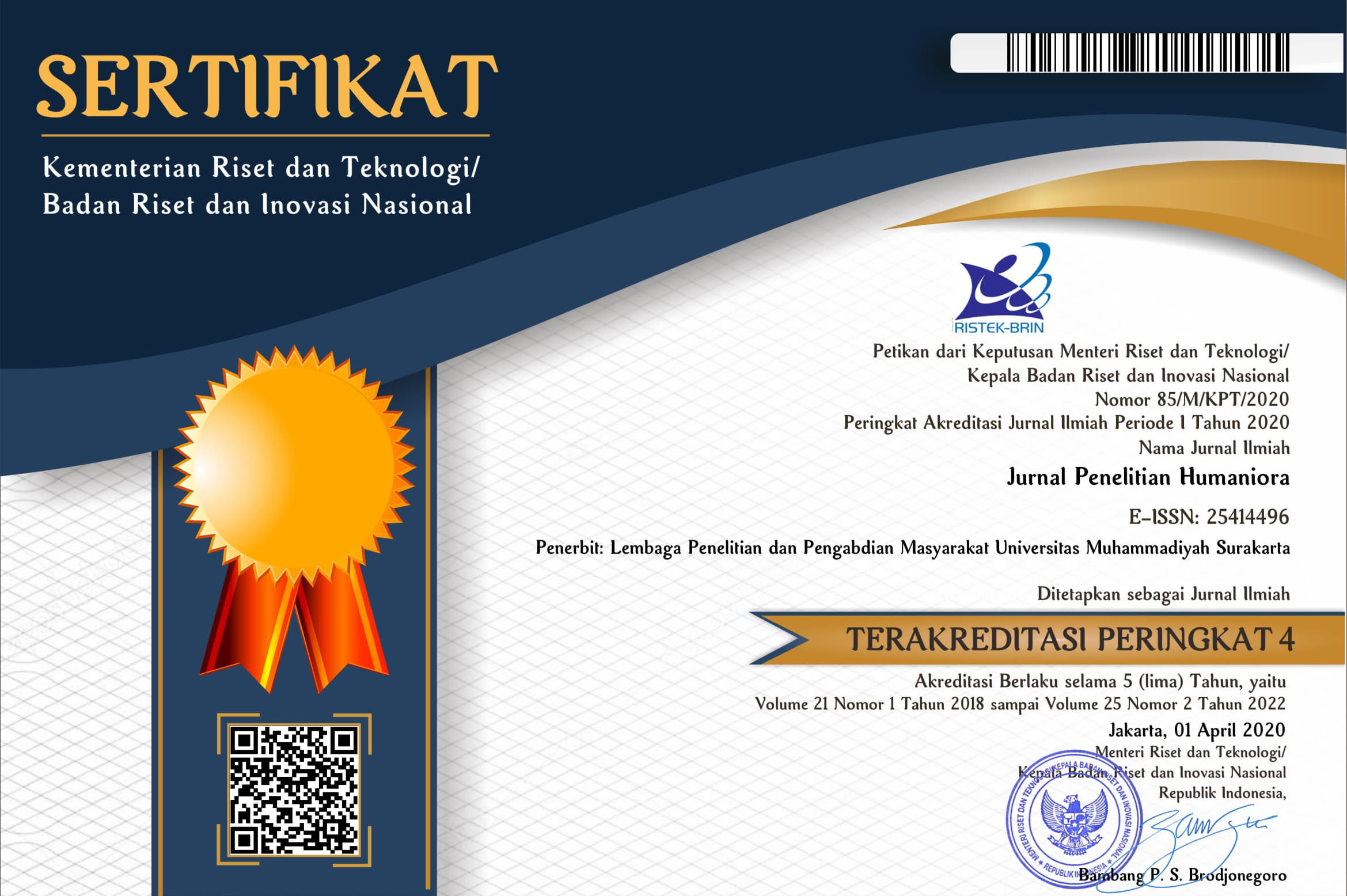WHICH TEAM ARE WE, LEAD TEACHER OR BOSS TEACHER? (AN INVESTIGATION OF IN-SERVICE TEACHERS’ THINKING AND DO TOWARD STUDENTS’ BEHAVIOR AND CLASSROOM MANAGEMENT)
Nuronia Cahyaningtyas(1*), Nadia Asma’(2)(1) Universitas Sebelas Maret
(2) Universitas Sebelas Maret
(*) Corresponding Author
Abstract
Keywords
Full Text:
PDFReferences
Armstrong, D. (2019). Addressing the wicked problem of behaviour in schools. International Journal of Inclusive Education, 1–17. doi:10.1080/13603116.2019.1597183
Borg, S. (2003). Teacher cognition in language teaching: A review of research on what language teachers think, know, believe, and do. Language Teaching, 36(2), 81–109.
Clunies-Ross, P., Little, E., & Kienhuis, M. (2008). Self-reported and actual use of proactive and reactive classroom management strategies and their relationship with teacher stress and student behaviour. Educational Psychology, 28(6), 693–710. doi:10.1080/01443410802206700
Fauziati, E. (2017). Teaching English as a Foreign Language: Principle and Practice. Surakarta: Era Pustaka Utama.
Kagan, D. M. (1992). Implications of Research on Teacher Belief. Educational Psychologist, 27(1), 65–90. https://doi.org/10.1207/s15326985ep2701_
Kaplan, A., Gheen, M., & Midgley, C. (2002). Classroom goal structure and student disruptive behaviour. British Journal of Educational Psychology, 72(2), 191–211. doi:10.1348/000709902158847
Lanas, M., & Brunila, K. (2019). Bad behaviour in school: a discursive approach. British Journal of Sociology of Education, 1–15. doi:10.1080/01425692.2019.1581052
Richards, J. C., & Lockhart, C. (1994). Reflective Teaching in Second Language Classrooms (Vol. 79). New York: Cambridge University Press. https://doi.org/10.2307/329404
William, M., & Burden, R. L. (1997). Psychology for Language Teachers: Social Constructivist Approach. Cambridge: Cambridge University Press.
Yin, R. (2003). Case study Research Design and Methods. London: Sage Publication
Article Metrics
Abstract view(s): 615 time(s)PDF: 529 time(s)
Refbacks
- There are currently no refbacks.











